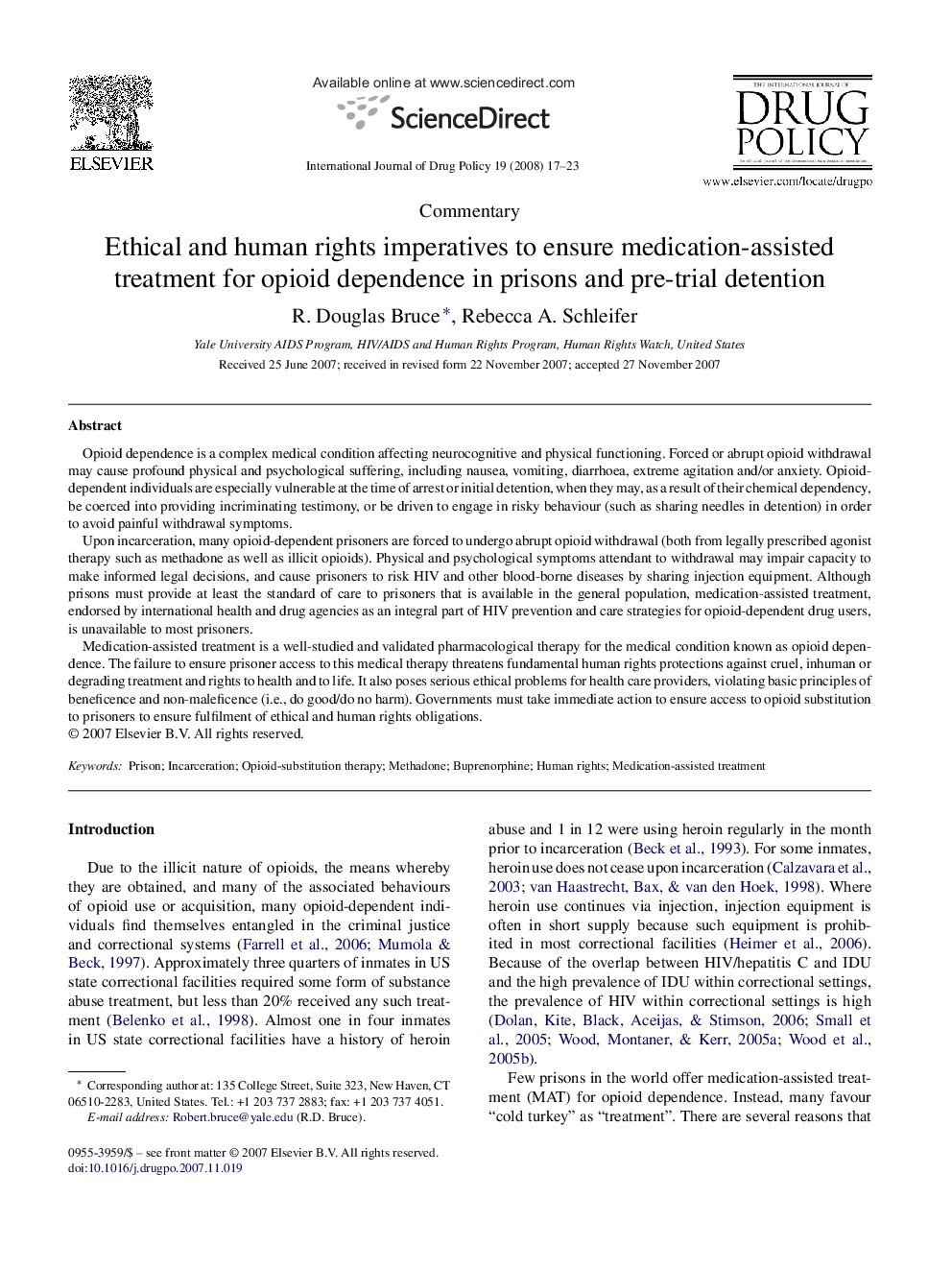| کد مقاله | کد نشریه | سال انتشار | مقاله انگلیسی | نسخه تمام متن |
|---|---|---|---|---|
| 1075827 | 1486333 | 2008 | 7 صفحه PDF | دانلود رایگان |

Opioid dependence is a complex medical condition affecting neurocognitive and physical functioning. Forced or abrupt opioid withdrawal may cause profound physical and psychological suffering, including nausea, vomiting, diarrhoea, extreme agitation and/or anxiety. Opioid-dependent individuals are especially vulnerable at the time of arrest or initial detention, when they may, as a result of their chemical dependency, be coerced into providing incriminating testimony, or be driven to engage in risky behaviour (such as sharing needles in detention) in order to avoid painful withdrawal symptoms.Upon incarceration, many opioid-dependent prisoners are forced to undergo abrupt opioid withdrawal (both from legally prescribed agonist therapy such as methadone as well as illicit opioids). Physical and psychological symptoms attendant to withdrawal may impair capacity to make informed legal decisions, and cause prisoners to risk HIV and other blood-borne diseases by sharing injection equipment. Although prisons must provide at least the standard of care to prisoners that is available in the general population, medication-assisted treatment, endorsed by international health and drug agencies as an integral part of HIV prevention and care strategies for opioid-dependent drug users, is unavailable to most prisoners.Medication-assisted treatment is a well-studied and validated pharmacological therapy for the medical condition known as opioid dependence. The failure to ensure prisoner access to this medical therapy threatens fundamental human rights protections against cruel, inhuman or degrading treatment and rights to health and to life. It also poses serious ethical problems for health care providers, violating basic principles of beneficence and non-maleficence (i.e., do good/do no harm). Governments must take immediate action to ensure access to opioid substitution to prisoners to ensure fulfilment of ethical and human rights obligations.
Journal: International Journal of Drug Policy - Volume 19, Issue 1, February 2008, Pages 17–23